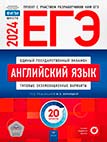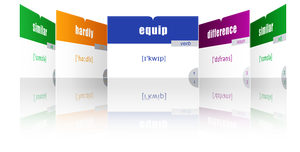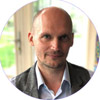Тест №07 по ЕГЭ-2024. Английский язык. ВЕРБИЦКАЯ (Ответ)
- Подробности
- 27942

Прочитайте приведённые ниже тексты. Преобразуйте, если необходимо, слова, напечатанные заглавными буквами в конце строк, обозначенных номерами 19-24, так, чтобы они грамматически соответствовали содержанию текстов. Заполните пропуски полученными словами. Каждый пропуск соответствует отдельному заданию из группы 19-24.
The rise of Moscow as the capital
|
19 |
By the second half of the 15' century Moscow became the undisputed centre of a unified Russian state. During the reign of the grand prince of Moscow Ivan III, the Kremlin was enlarged and it got brick walls more than a mile in length and in some places up to 60 feet (18 metres) high. |
ENLARGE |
|
20 |
In 1534-38 the Kitay-gorod, previously protected only by earth banks and palisades, was also surrounded by a brick wall, with 12 towers. |
PROTECT |
|
21 |
The town has grown and spread outside the walls to form what became known as the Bely Gorod (“White City”) in a semicircle around the Kremlin and Kitay-gorod. |
GROW |
Read by Neuralnet
Albert Einstein
|
22 |
Most people probably know Albert Einstein as the most intelligent person who ever lived. His name has become part of many languages when we want to say someone is a genius, as in the phrase, “She’s a real Einstein”. |
BECOME |
|
23 |
In 1999, Time magazine named Einstein as the Person of the Century. No one could have guessed this would happen when he was at school. He was extremely interested in science but hated the system of learning by heart. He said it destroyed learning and creativity. He had already done many experiments, but failed the entrance exams to a technical college. |
HAPPEN |
|
24 |
He didn’t let this setback stop him. He eventually graduated from university, in 1900, with a degree in physics. Twelve years later he was a university professor and in 1921, he won the Nobel Prize for Physics. He went on to publish over 300 scientific papers. |
WIN |
Read by Neuralnet





 Как правильно изучать английский язык по карточкам (статьи)
Как правильно изучать английский язык по карточкам (статьи)